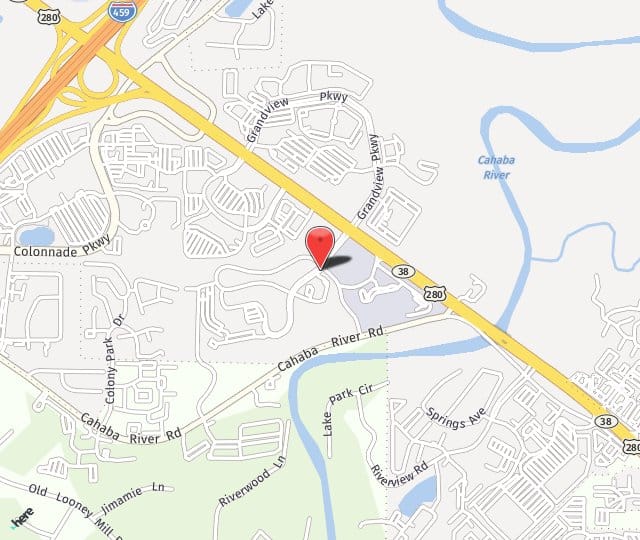
Atrial fibrillation (Afib) is the most common cardiac arrhythmia, with approximately 2.7 million Americans suffering from some degree of Afib. For most patients with atrial fibrillation, medication is the first treatment option to attempt to get their heart back into a regular rhythm. If that doesn’t work, catheter ablation is the next step and is effective for patients with intermittent arrhythmia and a structurally normal heart.
But even this often proves to be unsuccessful and the patient’s arrhythmia continues. In fact, Afib persists in about half of patients with long-standing Afib, even after the above treatments.
But Dr. Macy Smith now has another treatment option that is excellent for patients with long-standing atrial fibrillation and structural heart changes. It is called convergent therapy. This is a minimally invasive procedure performed by Dr. Smith as the electrophysiologist and a cardiac surgeon working in tandem.
What is Convergent Therapy?
Convergent therapy is a relatively new method for treating persistent AFib. It is a multidisciplinary, closed chest, minimally-invasive endoscopic procedure that uses ablation to create scar lines on the heart (both inside and outside) to return it to normal rhythm. The lesions/scar lines work to divert the abnormal electrical impulses in the heart that cause arrhythmia.
Benefits of Convergent Therapy for Treating AFib
Convergent therapy is a great option for patients with long-standing arrhythmia that won’t respond to medicine or standard catheter ablation. It has these advantages:
- Combination of outer and inner heart tissue ablation
- Closed chest procedure
- No need to deflate the lungs
- Minimally invasive
- Entry is made through an endoscopic incision in diaphragm
- The heart continues to beat normally during the procedure
- Much easier recovery and less post-procedure pain
- The procedure can be performed at a single facility
- Lowers long-term cost of care by ending the pattern of treatment for ongoing arrhythmia
What Dr. Smith’s patients say
"Dr. Macy is an excellent doctor! He diagnosed my heart problem, and after a careful explanation of treatment options, he provided the most non-invasive treatment possible. I am healed and much stronger. I would highly recommend Dr. Macy to anyone needing treatment."
Who is a candidate for Convergent Therapy?
Convergent therapy is a good treatment option for those:
- Living with atrial fibrillation for many years
- With structural heart disease, such as coronary artery disease
- With an enlarged left atrium
- Who have failed treatment with medication
- Who have failed previous catheter ablation treatments
How is Convergent Therapy performed?

This is a multidisciplinary procedure involving both a cardiac surgical team and an electrophysiologist and his team. The cardiothoracic surgery team leads off. The surgeon creates a tiny incision in the patient’s abdomen and inserts an endoscope to provide visuals and an epicardial ablation device. The ablation device uses radiofrequency energy.
The endoscope guides the surgeon up to the heart where the ablation device uses the RF energy to create an area of ablated tissue on the back wall of the left atrium. This is done from outside the normally beating heart. The endoscope and epicardial device are then withdrawn, and the incision is closed.
Now Dr. Smith takes over. Entering through an artery in the groin, Dr. Smith threads a catheter up the artery to the heart, using x-ray guidance. Once at the heart, the catheter tip delivers the RF heat energy to the inside of the heart. This ablation fills in any remaining gaps in the outer ablation, eliminating all of the abnormal electrical impulses. Tests are used to confirm the heart is in normal rhythm and the catheter is withdrawn. This ends the procedure.
What to expect after Convergent Therapy
Because convergent therapy is performed in a single setting and does not involve full open surgery, recovery is far easier. Patients don’t have the pain associated with large chest incisions. Patients can typically return home from the hospital in 2-3 days.
After the initial recovery, Dr. Smith evaluates patients at six- and 12-month intervals to ensure the heart rhythm has settled permanently back into a normal rhythm.
How successful is Convergent Therapy?
The dual approach used in convergent therapy is showing success rates from 75-80 percent, a huge increase over the 50 percent success rate formerly seen in patients with long-standing AFib.
Schedule a Consultation
If you have long-standing Afib and would like to explore convergent therapy as a treatment option, contact Macy C. Smith, Jr., MD, FACC, FHRS. Call 205-971-7566 to schedule a consultation with Dr. Macy Smith. Dr. Smith specializes in treating Atrial Fibrillation in Birmingham, Alabama.

